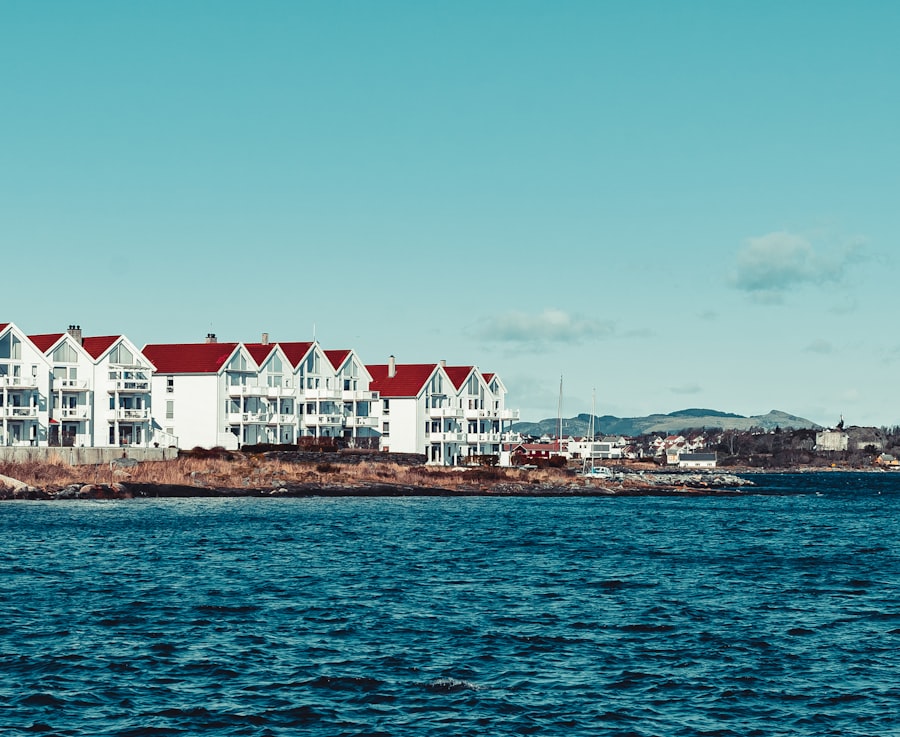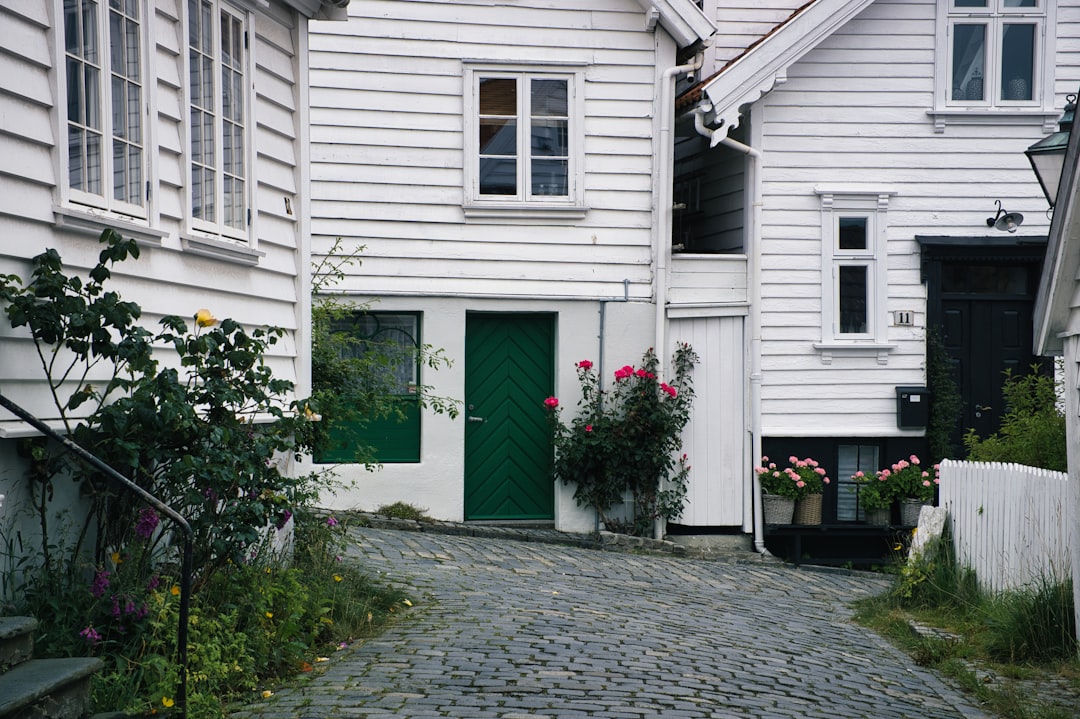Recycling in Norway has a rich and evolving history that reflects the country’s commitment to environmental sustainability. The practice of recycling can be traced back to the early 20th century when the need for resource conservation became apparent. During World War II, the Norwegian government initiated campaigns to encourage citizens to recycle materials such as paper and metal, which were in short supply.
This early awareness laid the groundwork for a more structured recycling system that would develop in the decades to follow. By the late 20th century, Norway had begun to implement more comprehensive recycling policies. The introduction of the Waste Management Act in 1999 marked a significant turning point, as it established a framework for waste management and recycling across the country.
This legislation aimed to reduce waste generation and promote recycling as a key component of environmental policy. Over the years, Norway has become a leader in recycling, with innovative programmes and initiatives that have set an example for other nations to follow. Plan your relocation with confidence. Book a personal meeting with the Norway Relocation Group today. https://norwayrelocation.no/one-hour-strategy-session/
Summary
- Recycling in Norway has a long history, dating back to the early 1900s when the first recycling plant was established in Oslo.
- ‘Borettslag’ plays a crucial role in Norway’s recycling system, as it is responsible for organizing and managing the recycling efforts within residential communities.
- Understanding the sorting process in ‘Borettslag’ is essential for residents to effectively participate in the recycling system and ensure that waste is properly sorted and disposed of.
- Proper waste disposal is of utmost importance in Norway, as the country places a strong emphasis on environmental sustainability and reducing the impact of waste on the environment.
- Recycling in ‘Borettslag’ faces challenges such as lack of participation, improper sorting, and limited space for recycling facilities, which can hinder the effectiveness of the recycling system.
The Role of ‘Borettslag’ in Norway’s Recycling System
‘Borettslag’, or housing cooperatives, play a crucial role in Norway’s recycling system. These residential communities are not only responsible for providing housing but also for managing waste disposal and recycling efforts within their premises. Each ‘borettslag’ is typically governed by a board that oversees various aspects of community living, including waste management.
This local governance structure allows for tailored recycling initiatives that cater to the specific needs of residents. The integration of recycling into the daily lives of residents is facilitated by ‘borettslag’. Many housing cooperatives have established designated recycling stations where residents can sort their waste into different categories, such as paper, plastic, glass, and organic materials.
This localised approach not only simplifies the recycling process but also fosters a sense of community responsibility towards environmental stewardship. By engaging residents in these efforts, ‘borettslag’ contribute significantly to Norway’s overall recycling rates.
Understanding the Sorting Process in ‘Borettslag’

The sorting process within ‘borettslag’ is a vital component of effective recycling. Residents are encouraged to separate their waste at the source, which means categorising items before they are disposed of. This practice not only enhances the efficiency of recycling but also reduces contamination, which can hinder the recycling process.
In many ‘borettslag’, clear guidelines are provided to residents on how to sort their waste correctly, often accompanied by visual aids and educational materials. In addition to providing information, many ‘borettslag’ have implemented regular workshops and community events focused on waste sorting and recycling education. These initiatives aim to raise awareness about the importance of proper waste disposal and the impact it has on the environment.
By fostering a culture of recycling within the community, ‘borettslag’ empower residents to take an active role in environmental conservation, ultimately leading to higher recycling rates and reduced landfill waste.
The Importance of Proper Waste Disposal in Norway
Proper waste disposal is paramount in Norway, where environmental consciousness is deeply ingrained in society. The country has set ambitious goals for reducing waste and increasing recycling rates, recognising that improper disposal can lead to significant environmental harm. When waste is not disposed of correctly, it can result in pollution, harm wildlife, and contribute to climate change.
Therefore, educating citizens about proper waste disposal practices is essential for achieving these goals. In Norway, the government has implemented various measures to promote responsible waste disposal. This includes providing accessible recycling facilities, offering incentives for recycling, and conducting public awareness campaigns.
The emphasis on proper waste disposal is not only about compliance with regulations but also about fostering a culture of sustainability among citizens. By understanding the importance of their actions, individuals can contribute to a cleaner environment and a more sustainable future.
The Challenges of Recycling in ‘Borettslag’
Despite the positive strides made in recycling within ‘borettslag’, several challenges persist. One significant issue is the varying levels of commitment among residents towards recycling efforts. While some individuals are enthusiastic about participating in recycling programmes, others may be indifferent or unaware of the importance of their contributions.
This disparity can lead to contamination of recyclable materials and ultimately undermine the effectiveness of recycling initiatives. Another challenge faced by ‘borettslag’ is the limited space available for recycling facilities. Many housing cooperatives are situated in urban areas where space is at a premium, making it difficult to establish adequate recycling stations.
This limitation can hinder residents’ ability to sort their waste effectively and may discourage participation in recycling programmes. To address these challenges, ‘borettslag’ must find innovative solutions that engage residents and optimise available resources.
The Impact of Recycling on the Environment in Norway

The impact of recycling on the environment in Norway cannot be overstated. By diverting waste from landfills and promoting the reuse of materials, recycling significantly reduces greenhouse gas emissions and conserves natural resources. For instance, recycling paper saves trees and reduces energy consumption compared to producing new paper from virgin materials.
Similarly, recycling metals reduces the need for mining and extraction processes that can be detrimental to ecosystems. Moreover, Norway’s commitment to recycling has led to a circular economy model where materials are continuously reused and repurposed. This approach not only minimises waste but also fosters innovation in product design and manufacturing processes.
As more materials are recycled, industries can rely less on finite resources, contributing to a more sustainable economic model that benefits both society and the environment.
How ‘Borettslag’ Encourages Community Participation in Recycling
Community participation is essential for successful recycling initiatives within ‘borettslag’. Many housing cooperatives actively encourage residents to engage in recycling through various strategies. One effective method is organising community events focused on sustainability, such as clean-up days or educational workshops on waste management.
These events create opportunities for residents to learn about recycling while fostering a sense of camaraderie among neighbours. Additionally, ‘borettslag’ often implement incentive programmes that reward residents for their recycling efforts. For example, some cooperatives may offer discounts on service fees or organise competitions with prizes for those who demonstrate exceptional commitment to recycling.
By creating a positive reinforcement system, ‘borettslag’ motivate residents to participate actively in recycling initiatives and contribute to a cleaner environment.
The Future of Recycling in Norway
The future of recycling in Norway looks promising as the country continues to innovate and adapt its strategies to meet evolving environmental challenges. With increasing awareness about climate change and resource depletion, there is a growing emphasis on sustainable practices across all sectors of society. The Norwegian government has set ambitious targets for reducing waste and increasing recycling rates, aiming for a circular economy where materials are reused rather than discarded.
Technological advancements are also expected to play a significant role in shaping the future of recycling in Norway. Innovations such as smart bins equipped with sensors that monitor waste levels can enhance efficiency by optimising collection routes and reducing costs. Furthermore, advancements in sorting technology can improve the accuracy of material separation, leading to higher quality recyclables and reduced contamination rates.
The Economics of Recycling in ‘Borettslag’
The economics of recycling within ‘borettslag’ is an important consideration for housing cooperatives as they strive to balance environmental responsibility with financial sustainability. While implementing effective recycling programmes may require initial investments in infrastructure and education, the long-term benefits often outweigh these costs. By reducing waste disposal fees through increased recycling rates, ‘borettslag’ can save money while contributing positively to the environment.
Moreover, many municipalities offer financial incentives for housing cooperatives that achieve high recycling rates or implement innovative waste management solutions. These incentives can further offset costs associated with establishing and maintaining recycling facilities within ‘borettslag’. As communities become more engaged in sustainable practices, they not only contribute to environmental conservation but also create economic opportunities through job creation in the green sector.
The Role of Technology in Improving Recycling in Norway
Technology plays an increasingly vital role in enhancing recycling efforts across Norway. From advanced sorting systems that utilise artificial intelligence to mobile applications that educate citizens about proper waste disposal practices, technological innovations are transforming how individuals and communities approach recycling. These tools not only streamline processes but also empower residents with knowledge about their impact on the environment.
In addition to improving efficiency, technology can facilitate better communication between residents and ‘borettslag’ management regarding waste disposal practices. For instance, digital platforms can provide real-time updates on collection schedules or notify residents about upcoming community events focused on sustainability. By leveraging technology effectively, ‘borettslag’ can foster greater engagement among residents while enhancing overall recycling efforts.
Tips for Effective Recycling in ‘Borettslag’
To maximise the effectiveness of recycling efforts within ‘borettslag’, residents can adopt several best practices. Firstly, it is essential to familiarise oneself with local recycling guidelines provided by the housing cooperative or municipality. Understanding what materials are recyclable and how they should be sorted can significantly reduce contamination rates and improve overall efficiency.
Secondly, residents should make an effort to reduce waste at its source by opting for products with minimal packaging or choosing reusable alternatives whenever possible. By adopting a mindset focused on sustainability, individuals can contribute positively to their community’s recycling efforts while minimising their environmental footprint. Lastly, active participation in community events related to sustainability can foster a sense of belonging and shared responsibility among residents.
Engaging with neighbours not only strengthens community ties but also reinforces the importance of collective action towards achieving common environmental goals. In conclusion, as individuals consider relocating to Norway or settling into a new ‘borettslag’, they may find it beneficial to connect with organisations like the Norway Relocation Group. This group offers invaluable assistance throughout the relocation process, ensuring newcomers feel supported as they navigate their new environment.
Additionally, those interested in learning Norwegian will find excellent courses at the NLS Norwegian Language School in Oslo, which provide an immersive experience that enhances both language skills and cultural understanding—essential tools for thriving within Norwegian society while actively participating in its commendable recycling initiatives.
Register for a Norwegian class at the NLS Norwegian Language School now!

